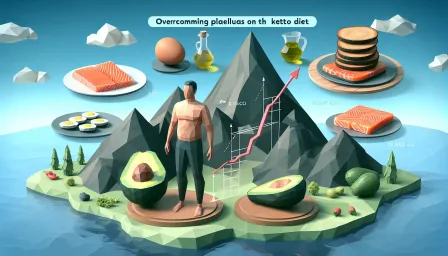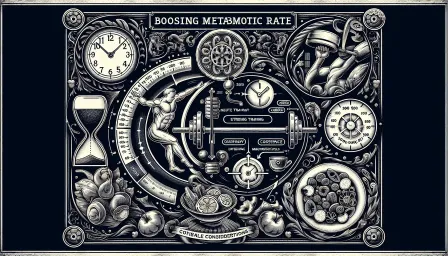Discover the Best Sugar Reduction Alternatives for a Healthier Lifestyle

Explore a comprehensive guide to the best sugar reduction alternatives for a healthier lifestyle. Learn about natural sweeteners, benefits, and recipes.
Introduction
In today's health-conscious world, reducing sugar intake has become a common goal for many. Excessive sugar consumption is linked to various health issues such as obesity, diabetes, and heart disease. Thankfully, several sugar reduction alternatives can help you maintain a healthy lifestyle without sacrificing sweetness. This article will explore the best alternatives to sugar, their benefits, and how to incorporate them into your diet.
Understanding Sugar Reduction Alternatives
The term "sugar reduction alternatives" refers to substitutes that provide sweetness without the negative effects of refined sugar. These alternatives can be natural or artificial, and each has unique properties that make it suitable for different purposes.
Natural Sweeteners
Stevia
Stevia is derived from the leaves of the Stevia rebaudiana plant. It is highly regarded for its zero-calorie contribution and high sweetness intensity. Stevia is ideal for those aiming to reduce calorie intake while still enjoying sweet flavors.
Monk Fruit
Monk fruit, also known as Luo Han Guo, is another popular natural sweetener. It contains zero calories and does not raise blood sugar levels, making it an excellent choice for diabetics and those on a keto diet.
Honey
Honey, a well-known natural sweetener, offers additional health benefits due to its antioxidant and antimicrobial properties. While higher in calories than some other alternatives, honey's distinct flavor profile can enhance various dishes.
Maple Syrup
Maple syrup, derived from the sap of maple trees, is another natural sugar substitute rich in minerals and antioxidants. Though it contains more calories than some alternatives, its nutritional benefits can justify its use in moderation.
Artificial Sweeteners
Artificial sweeteners offer zero or low-calorie options for those looking to cut sugar from their diets without losing sweetness.
Aspartame
Aspartame is widely used in diet sodas and low-calorie foods. It is around 200 times sweeter than sugar, allowing for use in small quantities.
Saccharin
Saccharin is one of the oldest artificial sweeteners and is typically found in products such as diet drinks and sweetener packets. It is extremely sweet and used in minimal amounts.
Sucralose
Sucralose, commonly known by the brand name Splenda, is a versatile artificial sweetener used in a wide range of products. It is heat-stable, making it suitable for baking.
Benefits of Sugar Reduction Alternatives
Switching to sugar reduction alternatives provides numerous health benefits, including:
- Weight Management: Many alternatives have fewer calories than sugar, helping with weight control.
- Diabetes Management: Alternatives like stevia and monk fruit do not raise blood sugar levels, making them ideal for diabetics.
- Dental Health: Most sugar substitutes do not contribute to tooth decay, promoting better dental hygiene.
- Reduced Risk of Chronic Diseases: Lowering sugar intake can decrease the risk of developing heart disease, obesity, and other chronic conditions.
How to Incorporate Sugar Reduction Alternatives into Your Diet
Adding sugar reduction alternatives to your diet requires some creativity and knowledge about their properties:
Smoothies and Beverages
Blend fruits with stevia or monk fruit to create refreshing and sweet smoothies without the extra calories. Use alternatives like honey or maple syrup in tea and coffee for a natural sweetness.
Baking and Cooking
When baking, experiment with substitutes like stevia, sucralose, or monk fruit. Keep in mind that some alternatives may affect texture and moisture content, so you might need to adjust the recipe proportions.
Salad Dressings and Sauces
Create healthier salad dressings and sauces by substituting sugar with natural alternatives like honey and maple syrup, which add both sweetness and depth of flavor.
Popular Recipes Using Sugar Reduction Alternatives
Stevia-Sweetened Lemonade
Ingredients:
- 1 cup freshly squeezed lemon juice
- 4 cups water
- 1-2 teaspoons stevia powder (to taste)
- Ice cubes
Instructions:
- Mix lemon juice and water in a pitcher.
- Add stevia powder gradually until desired sweetness is reached.
- Serve over ice.
Monk Fruit Sweetened Muffins
Ingredients:
- 1 ¾ cups almond flour
- 1 teaspoon baking powder
- ½ teaspoon baking soda
- ¼ cup monk fruit sweetener
- 3 eggs
- ½ cup unsweetened applesauce
- 1 teaspoon vanilla extract
Instructions:
- Preheat oven to 350°F (175°C) and line a muffin tin with paper cups.
- Mix dry ingredients together in a bowl.
- In another bowl, whisk wet ingredients well.
- Combine wet and dry ingredients and mix until smooth.
- Divide batter into muffin tins and bake for 18-20 minutes or until a toothpick comes out clean.
Conclusion
Reducing sugar intake does not mean you have to compromise on taste. By choosing suitable sugar reduction alternatives, you can enjoy sweetness while promoting a healthier lifestyle. Whether you opt for natural sweeteners like stevia and monk fruit or artificial options like sucralose and aspartame, there is a plethora of alternatives available to fit your needs. Incorporate these substitutes into your diet through beverages, baking, and everyday cooking to reap their health benefits. Experiment with different recipes to find the best fit for your palate and nutritional goals. Your journey to a healthier life can still be sweet.



























